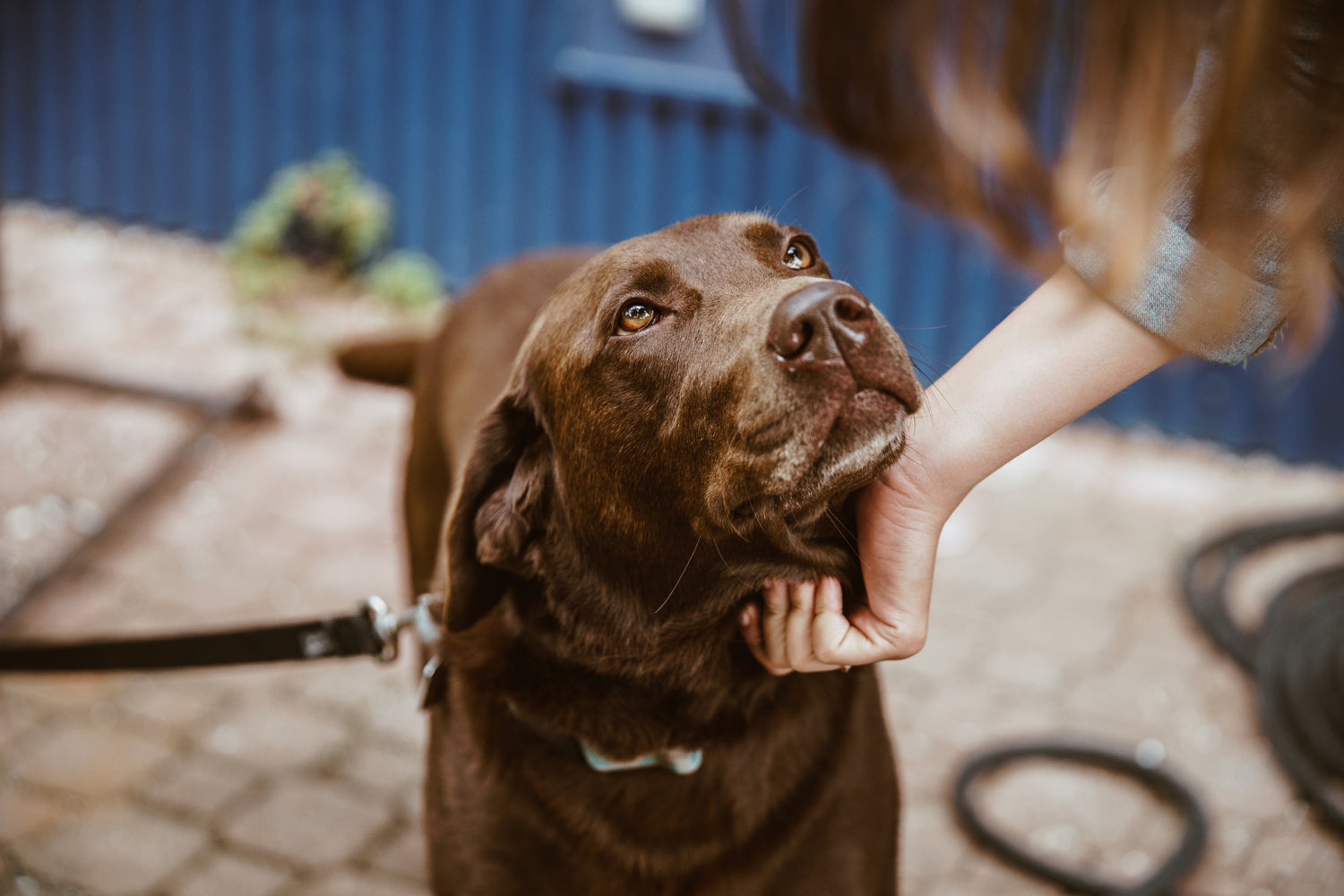What you need to know about your Dog and COVID-19
Are you worried that you dog may catch COVID-19?
While we understand that you want to protect yourself and your dog, there's currently no real evidence to support that domestic dogs, can get become sick with this new coronavirus. With this in mind, the BC Centre for Disease Control states that, " A pet dog in Hong Kong recently tested positive for the virus but did not show any signs of illness. This animal was from a household with a person infected with COVID-19. This situation is being monitored very closely and any new information on the ability of the virus to cause illness in pets and any other domestic animals will be updated as it becomes available."
During this Covid-19 pandemic, however, many dog owners will be stuck at home with only their dog to keep them company. If you have a dog at home, here are a few things to keep in mind. According to the BCCDC, anyone who is infected with COVID-19 should limit contact with their pet during their illness. If an infected person has to care for a pet, their hands should be thoroughly washed before and after interacting with their animals, as well as their pet's food and supplies. And, of course, any animal exposed to an infected individual should not come in contact with other people. If you are feeling well (no symptoms of COVID-19) and are not self-isolating because of COVID-19 illness, you can continue to take walks with your dog or spend time with your pet. With this in mind, you must practice safe social distancing in parks, and follow city bylaws. Although there isn't any evidence to suggest pets may transmit COVID-19, research from the U.S. Department of Health and Human Services states that, "the virus that causes coronavirus disease 2019 (COVID-19) is stable for several hours to days in aerosols and on surfaces."
Since it is conceivable that the virus could linger in a dog or cat's fur, it is recommended to stick to petting your own pup - for now. With this in mind we have compiled 10 tips for dog owners to help them navigate these challenging times, to dogs and their owners stay healthy. Ensure adequate dog products supply “ Dog owners should have enough food, supplements, medications, and any other pet-care products needed to last your dog at least two weeks and, ideally, four weeks. Have a contingency plan Identify someone who can take care of your dog in the event you no longer can. Be sure to inform them of any special care your dog requires. When it comes to medication, make sure to provide specific and detailed directions about dosing and administration. Find indoor games to help dogs exercise There are several ways to engage pets physically and mentally while indoors. Consider playing keep away, getting dogs to chase laser pointers, calling dogs back and forth through the house with treats, blowing bubbles for them to chase, playing hide and seek, or getting them puzzle toys.
You can also encourage them to forage for food, set up an indoor agility course, and play find the toy or treat. Make an indoor or backyard potty “ Having a stash of pee pads in the house may prove useful, if you and your dog don't want to go outdoors. Also, consider making a potty for your dog in the backyard by bordering off an area of the yard. Do not overfeed While more and more Americans are forced to stay home and self-isolate, it is easier than ever to stress eat during this time without realizing it' and overfeed dogs alongside yourself. Develop a schedule “Many dogs, like people, are comforted by routines. As many of us find our daily routines disrupted, it's important to develop new rituals and routines that help give pets structure.
Continue to feed them and walk them on a similar schedule, if possible, or develop new indoor routines to replace the missing rituals. Quarantine yourself from dogs If you have tested positive for COVID-19 or suspect that you may be positive, it remains unclear whether a dog contract COVID-19 or become a vector for passing it, so steer clear of dogs and other humans in your household during this time. If you cannot find someone else to care for your dog, continue providing care yourself, but limit contact with them as much as possible. Try not to pet them but, if you must, wash your hands both before and after. Do not kiss them or snuggle with them, and wear a face mask around them. Once you get better and the quarantine has passed, you can give your pet extra love and snuggles to make up for the couple of weeks apart. Plan for medical emergencies If you have tested positive for COVID-19 or suspect that you may be positive, and your dog becomes sick or experiences an emergency that requires veterinary attention and no one else can take them to a vet or animal hospital, pet owners should call ahead to inform the vet of the situation.
Have updated medical records If worse comes to worst, you may have to board your dog to keep him or her safe. For this reason, it is a good idea to ensure every pet is up to date on his or her vaccines. Also, make sure pets are microchipped and that their records are up to date. Stay calm Since dogs pick up on our nervous energy, the last thing you want to do is stress them out in a way that causes them to act out, further perpetuating your own anxiety. Do some deep breathing, pet them calmly, and make sure to give them your full, undivided attention at least 15 minutes per day, to soothe both them and yourself.

Leave a comment